Potential Careers
- Early Childhood teacher
- Elementary Education teacher
- Preschool owner or director
- Teacher leader

Whether you are a practicing teacher, working in the community, or right out of a bachelor’s program, the master of education in Elementary Education: The Early Years may be the right fit for you.
The Center for Education is no longer accepting new students into its graduate education programs.
Master's
Certification
On Campus
45
3 years
The early elementary education graduate program prepares you to use innovative practice to meet the demands of today’s diverse, inclusive, and technology-driven schools. You'll receive individualized instruction and be prepared to serve and value diverse children and families in a variety of educational settings.
Through hands-on graduate work, Widener challenges educators and encourages learning through civic engagement, scholarship, and cultural diversity. You'll receive personalized attention through small class size, expert faculty, and individualized program counseling.
View the academic catalog for Loading... requirements.
You may earn your teaching certification in Elementary Education: The Early Years (PreK-4) in addition to the master's degree.
View our academic catalog for Loading...
Each state/jurisdiction has requirements that candidates must meet in order to obtain licensure and/or certification to teach. It is the student’s responsibility to seek appropriate guidance before beginning any academic program. If you intend to seek certification outside of Pennsylvania, the University recommends that you contact the appropriate state licensing agency to obtain specific licensure/certification requirements per state and the most up-to-date information.
To view Widener’s licensure eligibility by state/jurisdiction, please visit the Center for Education: Program Licensure page.
Students enrolling in public kindergarten and elementary schools is expected to increase over the coming decade, and the number of classes needed to accommodate these students should rise.
You'll provide exemplary instruction to local students while putting your knowledge into practice at our own Widener Child Development Center.
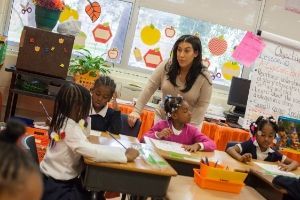
Students learn through a combination of class time, fieldwork, and one-on-one advising. This multi-faceted approach fosters confidence and experience and prepares students to become compassionate educators. Most of our students are working professionals and can easily fit this program into their schedules because classes are held during the week and in the evening.
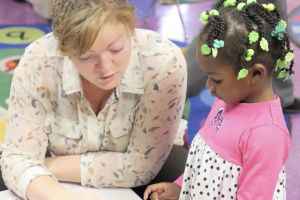
Students in the program spend time working in the field to develop their skills and gain personal experience interacting with students and teachers. Field experience asserts the importance of collaboration among students, faculty, seasoned teachers, administrators, and supportive educational specialists.
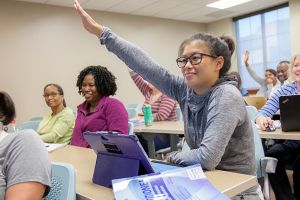
Faculty are committed to excellence, scholarship, and service and will work closely with you on research projects that transform theory into practice. Small class sizes mean you’ll receive individual attention from well-qualified and respected faculty who will help you construct a foundation for career enrichment and success in elementary education.
Education majors have the opportunity to join various clubs & organizations across and outside of campus to expand their network, including Kappa Delta Pi, and many more.
It takes someone special to teach someone special. Our pre-service educators are dedicated to learning, growing, and teaching the next generation.
"My interests include brain development, literacy development, and applications of technology in research and instruction. My greatest excitement in teaching comes from the way that working with graduate students spills over to my teaching of undergraduates and vice versa."
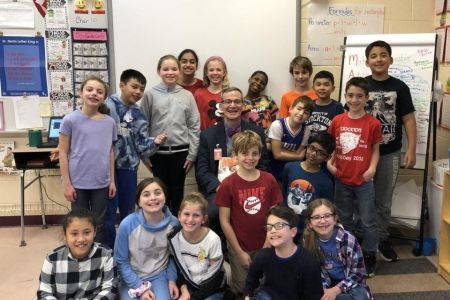
New Jersey's 2021 Superintendent of the Year Joseph Meloche attributes his success in the field of education to his experiences at Widener University.
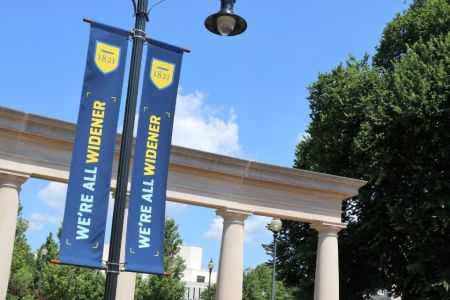
A series of science fairs hosted by Widener elementary teacher candidates shows the creativity and resiliency of the students, their teachers, and a community-focused program.
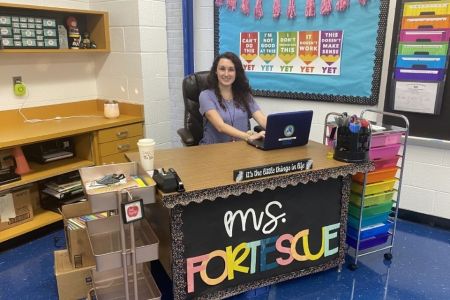
When COVID-19 forced the closure of K-12 schools in mid-March, Widener student teachers found themselves embarking on a new partnership with Agora Cyber Charter School.
Simply apply to Widener and complete the financial aid process to be automatically considered for scholarships and grants. Because Widener is a private institution, we are able to offer financial assistance that brings our education within reach for individuals who might otherwise not be able to afford it. You might be surprised at how much we are able to offer in assistance.
In order to receive your part of the financial aid pie, all you have to do is submit your FAFSA. "FAFSA" stands for the Free Application for Federal Student Aid and helps identify whether you are eligible for aid awarded by Widener, the government, and other sources.
Widener offers a limited number of graduate assistantships to enrolled students. GAs receive tuition assistance for their work. Once you're a student, contact your program director for more information.
Widener University also partners with many local organizations and corporations to offer discounted tuition and other incentives to their employees. Don't see your company on the list? Ask them to become a partner. In addition, employers often offer educational reimbursement benefits. We encourage you to explore these opportunities and will be glad to provide any necessary documentation.
A limited number of university-based scholarships are made available to enrolled graduate students made possible directly from our academic department or thanks to the generosity of university donors. No extra steps are needed to be taken prior to admission. Once enrolled, contact your program director to learn more.
If you graduated with a degree from Widener, you may qualify for a 20% tuition discount. The first step to see what you qualify for is to submit your application. Widener offers students many paths to savings, and while we don't offer "double discounts", we'll make sure you'll get the biggest financial benefit you're eligible for. Only students who have completed an associate's, bachelor's, master's, or doctoral degree are eligible. Students who have pursued a 4+1, 4+2, or 3+3 pathway, graduate assistantship, Widener-funded scholarship, or other tuition discount may not be eligible if the financial discount granted surpasses 20%.
Tuition rates are subject to change. Official costs for your first year will be determined at time of enrollment.
503 E. 13th Street
Room # 113
